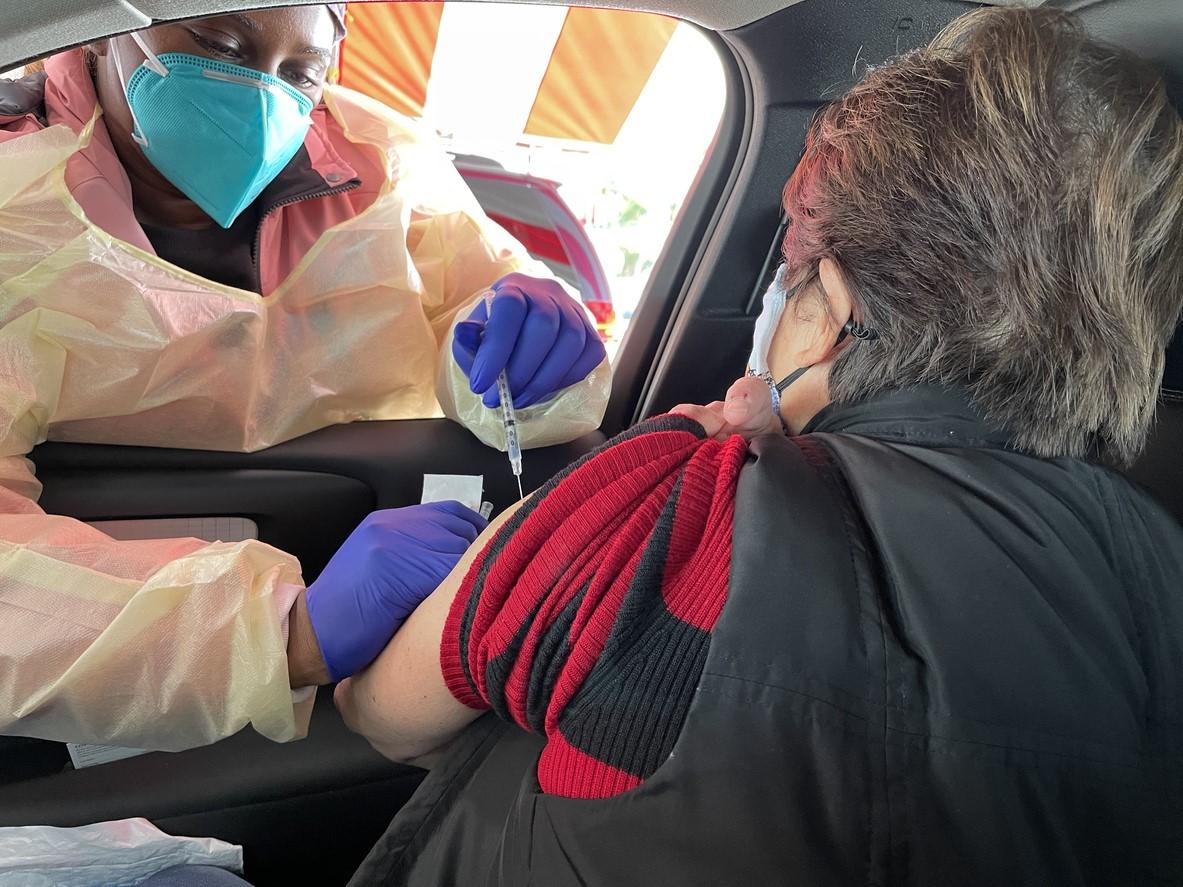An outside vaccine advisory panel for the Centers for Disease Control and Prevention (CDC) today voted to recommend the single-dose Johnson & Johnson COVID-19 vaccine after discussing study findings and policy and clinical considerations.
Their interim recommendation, moving a third vaccine option just a step away from distribution, comes on the heels of the Food and Drug Administration (FDA) emergency use authorization (EUA) announcement last night, accepting its advisory group's recommendation.
The CDC usually accepts the recommendations of its Advisory Committee on Immunization Practices (ACIP), and a formal CDC announcement will be the final step that clears vaccination to begin.
Distribution will start this week, with 2 million doses allocated to states, increasing to 20 million doses by the end of March. Johnson & Johnson expects to make 100 million doses for the US market in the first half of the year.
Advantages of a more agile vaccine tool
The one-dose vaccine—shipped and stored at regular refrigeration temperatures—gives health providers a more streamlined, agile tool for immunizing people in a range of settings, including mobile clinics, community sites, and underserved groups such as homeless people.
ACIP's vote passed with 12 in favor and 1 recusal. The panel recommended the vaccine for use in people ages 18 and older, based on the FDA's EUA.
At today's meeting, ACIP members asked for several clarifications about clinical trial findings and Johnson & Johnson's plans for further study. When discussing anaphylactic reactions following vaccination, Johnson & Johnson representatives said they learned of two recent events, both in South Africa, one of which meets the Brighton definition of an anaphylactic event.
One occurred a few hours after vaccination, involving symptoms such as fever, swollen tongue, and breathing difficulty in a patient whose condition is stable. Another occurred about 10 minutes after vaccination, consisting of fever, chills, and a drop in blood pressure.
Company officials also said the vaccine will be studied in children in the months ahead, with enrollment starting next week for those ages 12 to 17. They said they hope to gather data as soon as possible for 16- and 17-year-olds to submit for authorization inclusion.
Concerns about access, messaging
During the public comment session, most of the speakers pushed for greater access to vaccines, especially for risk groups such as dialysis patients and immigrants. They also aired concerns about vaccine hesitancy and messaging about differences among the three approved vaccines and perceptions that the Johnson & Johnson vaccine may have somewhat lower efficacy than the FDA-approved Pfizer/BioNTech and Moderna COVID vaccines.
A large international trial that spanned three continents found an overall effectiveness of 66.1% at about 1 months after vaccination, though the level was 72% in the US arm of the study. Protection in South Africa, where the B1351 variant is dominant, was slightly lower.
ACIP members today emphasized that, owing to differences in research protocols and settings, it's inappropriate to compare efficacy. Jeffrey Duchin, MD, health officer and chief of communicable diseases with Seattle–King County, said it's clear that all three vaccine have impressive efficacy against the most important metric: severe illness and death. He is an ACIP liaison representative with the National Association of County and City Health Officials (NACCHO).
Committee members also cautioned against making any comparisons about side effects among the three vaccines, though CDC officials said they will closely monitor patterns as the vaccines are rolled out and will communicate any differences.
After the vote, ACIP member Matthew Daley, MD, senior investigator with Kaiser Permanente's Institute for Health Research, said the idea of getting a vaccine, like eating, has become viewed as a common need, with discussions about prioritization being complicated ones.
"I am very grateful that we have three highly safe and effective vaccines," he said. "Everyone moves up on the priority list, and for that, we should all be grateful."
Tomorrow, ACIP meets again in another session to discuss COVID-19 vaccine implementation and clinical considerations, as well as safety. The members will also discuss the latest developments with SARS-CoV-2 variants. No votes are scheduled.






















